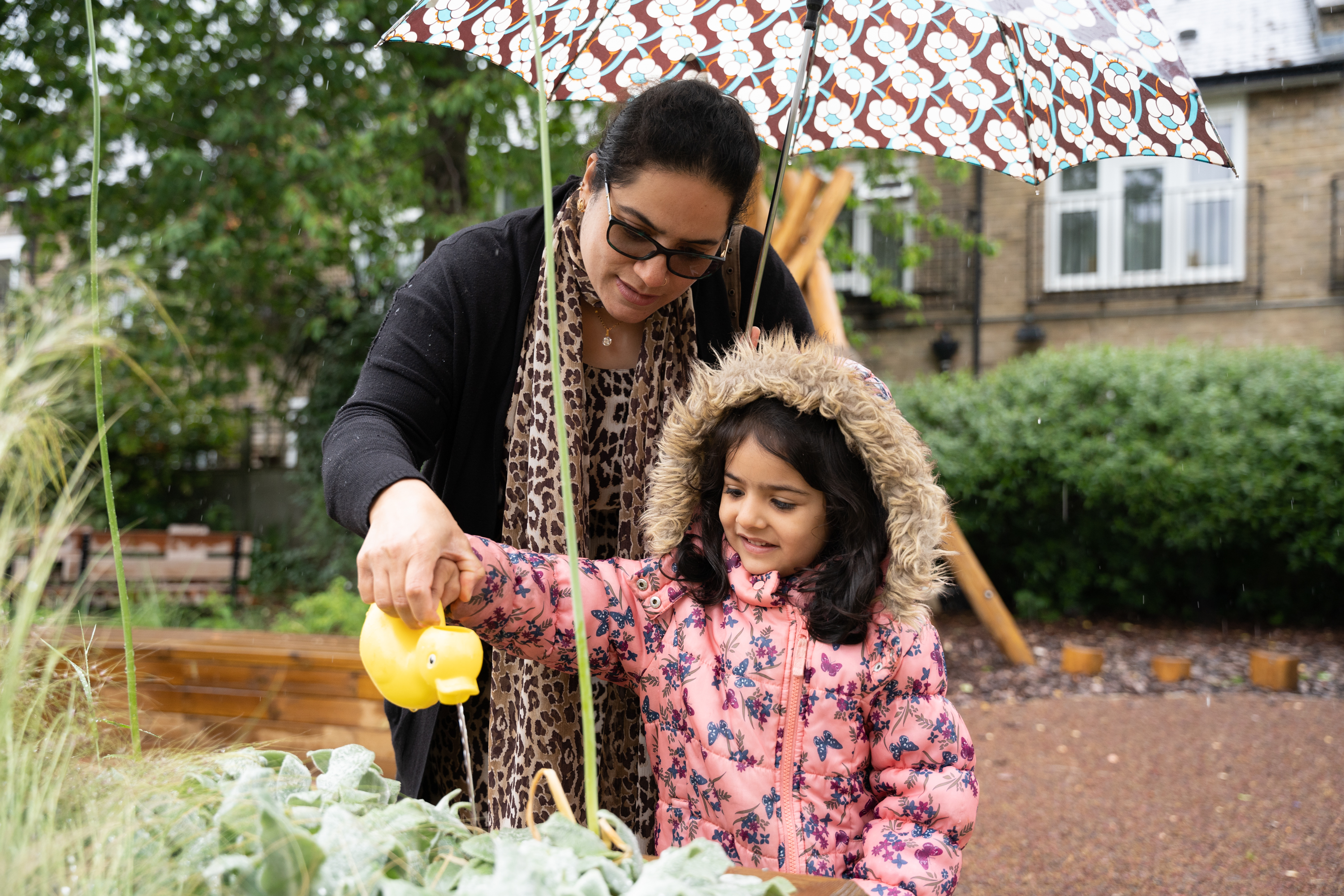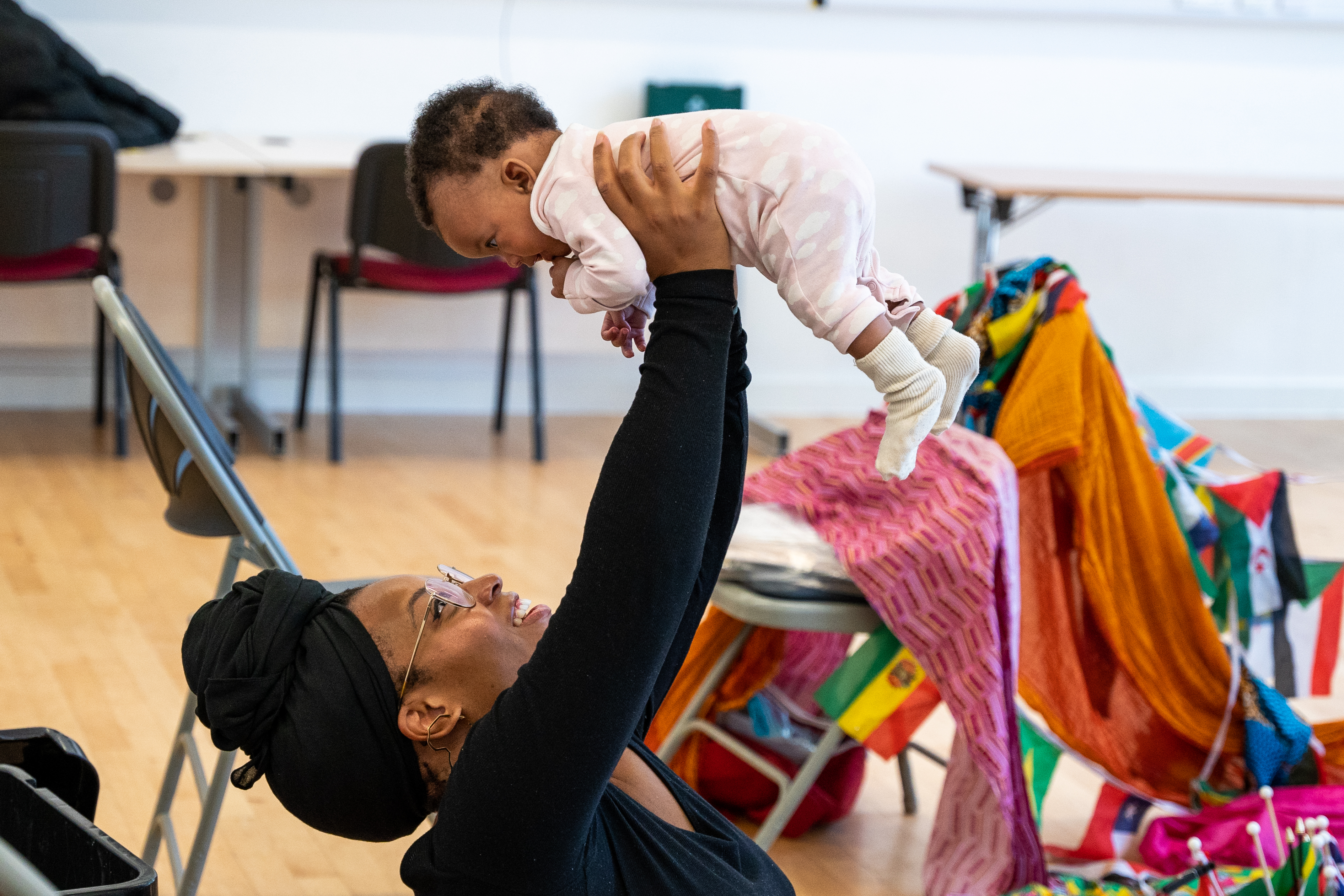.

On 11 September, Lambeth Early Action Partnership held its end of programme information sharing conference at Lambeth Town Hall, Southwest London. The event was a chance for everyone involved to share research and evidence on the outcomes of LEAP’s work for children and families in Lambeth, and to look at how these outcomes were achieved.
Born in the wake of Sure Start, and funded by the National Lottery Community fund, the LEAP project aimed to provide opportunities for change in the care and provision of pregnant women, babies, young children and families in the Lambeth area.
The event included insights from influential early years speakers, including Professor Ingrid Wolfe, as well as from parents from the local area, providing their thoughts into the benefits of the work LEAP has carried out and the long lasting benefits it has provided for the borough – hailed by programme director, Laura McFarlane, as a once in a lifetime opportunity.
LEAP focused on three core areas, identified as being those of greatest need:
Communication and language developmentSocial and emotional developmentPhysical development, including diet and nutrition
LEAP was one of five such local partnerships making up A Better Start (ABS), which all worked towards the same goals across Lambeth’s most economically deprived areas, spanning Stockwell to Myatt’s Field, North Brixton, and Tulse Hill, and looked at ways to address multiple issues of location specific concern. This included the infant mortality rate being 30 per cent higher than the average rate in Europe – and rising – along with rates of childhood obesity, and the fact that these trends are not being felt equally, with children from racial minority backgrounds or those facing social deprivation experiencing poorer health.
LEAP has, over its lifetime, developed more than 20 local services with the aim of creating an environment of shared learning and mutual trust, and a hope that all projects will spread roots that continue to connect with the community.

Services and areas of support include:The LEAP Parent and Infant Relationship Service (PAIRS)A tailored package of services aimed at improving children’s communication and language development outcomes.Healthy Living Platform (HLP)Community Activity and Nutrition (CAN) service – supporting pregnant women with a BMI over 25 to eat healthily and become more active.LEAP’s Oral health service.
OutcomesTo understand the reach of the programme and to evaluate long term benefits, LEAP commissioned Dartington Service Design Lab to evaluate its programme between April 2021 and August 2024.
The aim of the evaluation was to understand the extent to which LEAP contributed to improving the lives of children and families in the LEAP area.
This included, for example, which children benefitted, under what circumstances and why, with results hopefully used to inform local and national policymakers and decision-makers involved in early childhood development and place-based change.
The report offers lessons from LEAP’s experience to inform and improve future policy and practice. The following is a snapshot of LEAP’s impact:Families from LEAP’s priority population were nearly three times more likely to engage with multiple LEAP services than families who were not.Over the lifetime of the programme LEAP has reached a total of 15,374 families, including 14,028 children and 15,254 adults.LEAP has delivered 208 training sessions, seminars, or webinars to 1,807 early years practitioners working in Lambeth or neighbouring boroughs.Babies and children whose families engaged with relevant LEAP services were 40 per cent more likely to have reached expected levels of overall development at two and a half years old.Nationally, LEAP and A Better Start influenced the £301.75 million Family Hubs and the Start for Life programme.LEAP’s community engagement team delivered 1,839 events and activities reaching 6,782 individuals from 3,110 families (March 2015 to end of 2023).
Also, there are in fact, many smaller but significant points that came to light through the evaluation, which didn’t shy away from barriers to successful implementation, many of which resulted from a heavy workload and a lack of available time.
The COVID pandemic unsurprisingly also took a toll on implementation of both programmes and training, with some managers feeling it necessary to prioritise their key areas of provision. This resulted in the more resource-intensive programmes being dropped and staff training, such as that required for the Evelina Award – aimed at supporting early years practitioners working with children with speech, language and communication delay – falling by the wayside.
One Evelina Service Manager stated, ‘We were trying to maintain our programme. And so we tried to offer virtual training to settings... but most felt unable to access us because they were completely in crisis mode.’
The conclusion I took from the conference was that this was a huge collaboration of multiple agencies working together to help and support a community. The knowledge gained from this programme could, and hopefully will be, used to provide a meaningful insight into the gaps in provision within a deprived area, that cannot be evaluated in isolation but in complexity – being within the Borough of Lambeth.
A big take away, which will be of little surprise to many, is that the benefits of a wrap-around system is the model of care that provides the most benefit to early years children and their families – not just because everything is in one place, but because of the connections this provides.
Through an interconnecting web of services that offer joined up continuous support, help is much more likely to reach where the biggest differences need to be made. The conference surmised that Sure Start was wrongly criticised for only helping those families confident and able enough to access its services, with practitioners recognising it went way beyond this, creating a model of universalism and targeted care that is sorely missed to this day.
Overall, the general feeling in the room was positive for the full spectrum of the early years sector going forward – fuelled by the hard work of a workforce determined to provide the best care, education and support to families.
Laura McFarlane, director of LEAP added that although there is still a lot that needs to be done to improve early years provision. Not least, better pay, a higher regard for the level of expertise and a recognition of the level of responsibility the early educator role entails. She is optimistic for the future of the sector and that albeit slowly, there are signs of greater recognition and improvement throughout.










